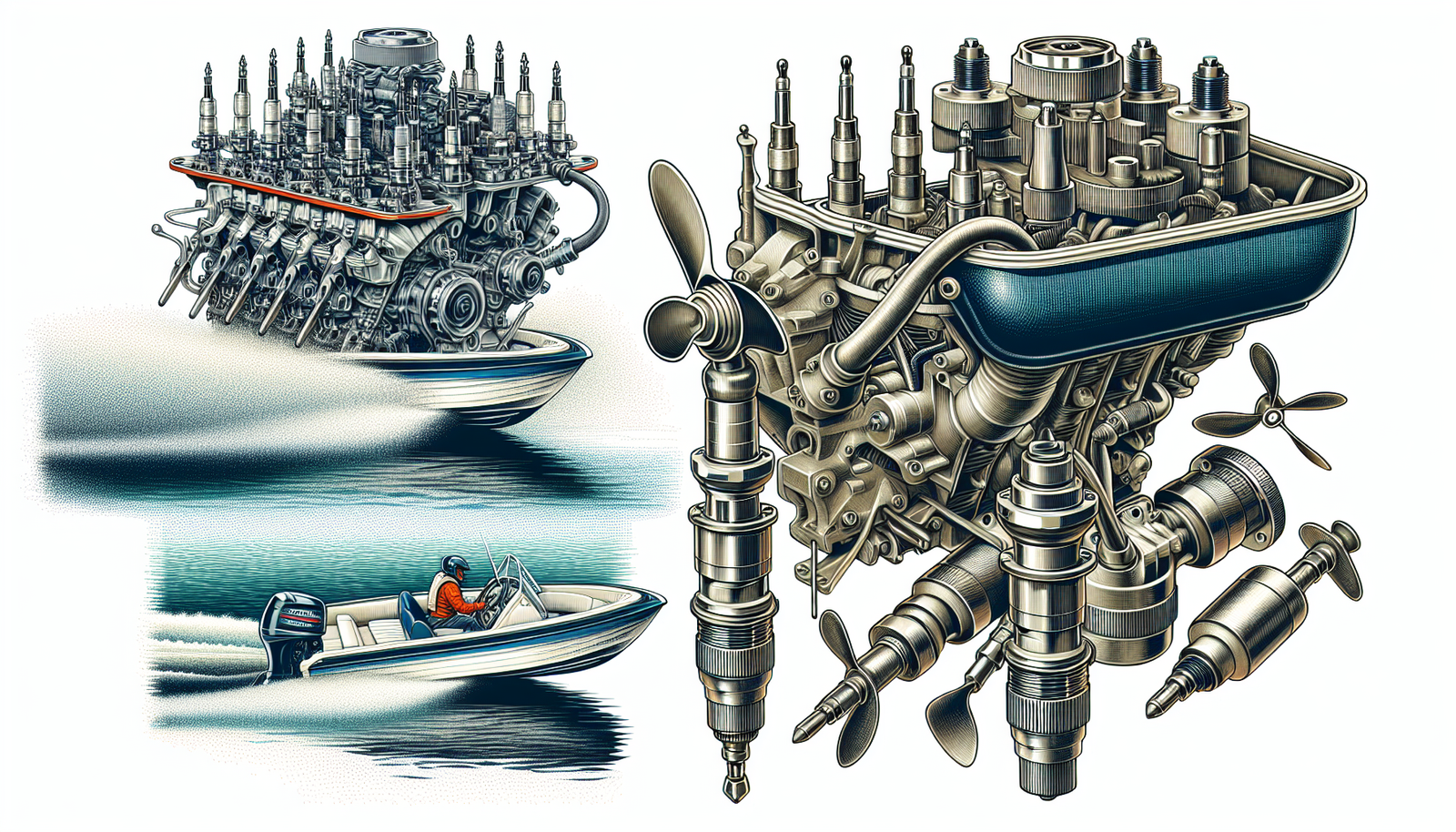Imagine you’re out on the open sea, the wind in your hair, the sun kissing your skin, your boat slicing through the waves like butter. But, what if I told you, this could be even better? That’s exactly what you’ll discover in the article, “How to Optimize Your Boat Engine’s Power And Efficiency.” This guide delivers valuable insights and actionable tips to help your boat engine achieve its peak performance. Learn how to tweak, teach, and tease out every drop of ocean-conquering power your boat’s engine has to offer.
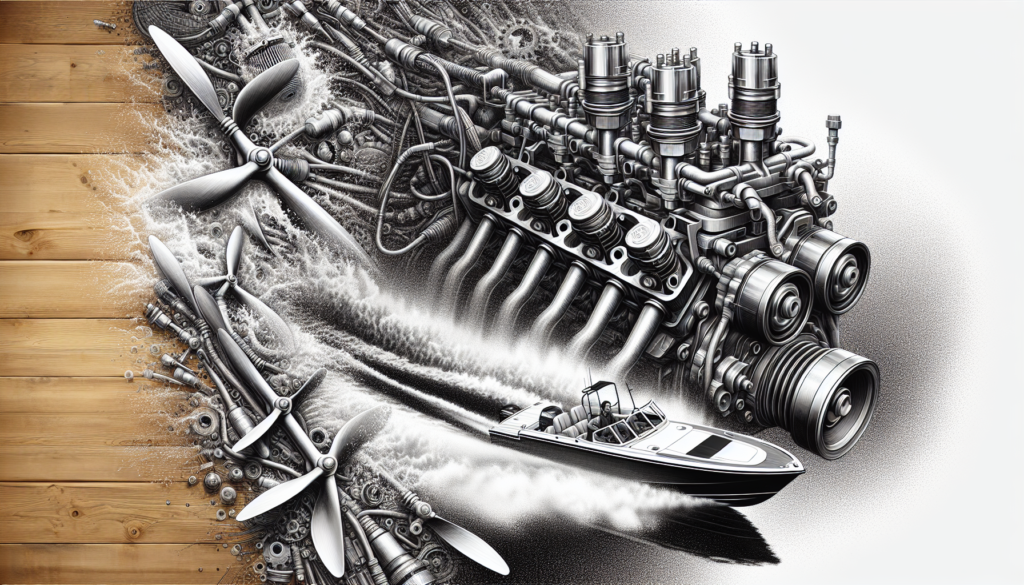
Understanding Your Boat Engine
Before we get into the details of maximizing your boat engine’s power and efficiency, it’s essential for you to understand the basic anatomy of a boat engine. Just like your car engine, your boat engine is made up of various components that work together to propel your boat forward. It’s comprised of the engine block, pistons, cylinders, and a series of valves that control air and fuel flow.
Basic anatomy of a boat engine
A boat engine is quite similar to a car engine in many respects. You have the engine block, which houses the cylinders where combustion takes place. Pistons move within these cylinders, and they’re connected to the crankshaft. As the pistons move up and down, they rotate the crankshaft, which ultimately drives the propeller. The valves control the intake of fuel and air into the cylinders, and the exhaust of burned gases.
Difference between outboard and inboard engines
Apart from the basic anatomy, it’s essential to understand the difference between outboard and inboard engines as well. An outboard engine is a self-contained unit attached to the back of the boat, which includes the engine, gearbox, and propeller. The advantage of an outboard engine is that it’s easy to access for maintenance and repair.
On the other hand, an inboard engine is mounted inside the boat’s hull with a drive shaft extending out the back of the boat to the propeller. While inboard engines might be more difficult to access for maintenance, they provide better balance and a lower center of gravity for your boat.
How a boat engine works
The working principle of a boat engine is straightforward enough. Fuel is mixed with air in the carburetor or fuel injection system and drawn into the cylinders. Here, it’s ignited by a spark from the spark plugs, causing an explosion that drives the pistons down. This explosion is what powers your boat.
Importance of Engine Maintenance
Now that we’ve covered the basics, let’s delve deeper into engine maintenance. Regular maintenance is crucial for several reasons.
Preventing damage and breakdowns
First off, routine maintenance prevents damage and breakdowns. By regularly inspecting and cleaning your engine, you can spot issues like leaks and damages early on and fix them before they lead to more significant problems.
Extending the life of the engine
Next, regular maintenance can significantly extend the life of your engine. Just like any other mechanical equipment, an engine also undergoes regular wear and tear. By addressing these issues promptly, you can ensure that they don’t accumulate and lead to premature engine failure.
Maintaining optimal performance
Lastly, regular maintenance can help maintain your engine at optimal performance. A well-maintained engine will run smoother, provide better fuel efficiency, and ultimately result in a more enjoyable boating experience.
Routine Inspection of the Engine
Routine inspection of the engine is an integral part of engine maintenance. Here are some things you should look at:
Checking for leaks and damages
Leaks are a common problem in boat engines. Therefore, always check for leaks around the engine block, gaskets, and seals. Oil leaks can lead to significant engine damage, so fix them as soon as you detect them.
Inspecting the cooling system
Your engine’s cooling system keeps it from overheating. Check your coolant levels regularly, and inspect the radiator and hoses for leaks or damages.
Examining the fuel system
The fuel system is another critical area to check. Look for leaks in your fuel lines, and ensure that your fuel pump and fuel filter are working correctly.
Looking for signs of wear and tear
Lastly, look for signs of wear and tear on your engine and its components. If you notice any excessive wear or damage, it’s better to replace the worn parts than to wait for them to break down entirely.
Regular Cleaning and Lubrication
Besides inspecting your engine, cleaning and lubricating it is another essential aspect of maintenance.
Keeping the engine clean
Dirt and grime can collect on your engine and its components, leading to abrasion and wear over time. Cleaning your engine regularly can prevent this. It’s best to clean your engine after every use, especially if you boat in saltwater.
Lubricating moving parts
Lubricating the moving parts of your engine reduces friction and wear, improving your engine’s longevity and performance. It’s especially important to lubricate parts like the pistons and cylinders, which move rapidly and continuously when your engine is running.
Importance of using quality lubricants
The quality of the lubricants you use is equally essential. High-quality lubricants provide better protection against friction and heat, leading to improved engine performance and life.
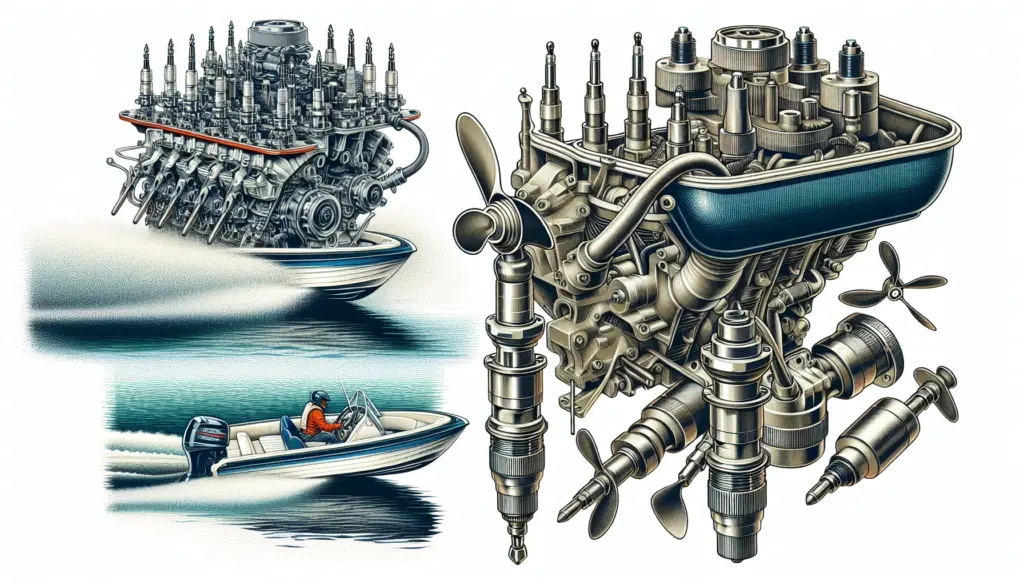
Timely Replacement of Worn Out Parts
Despite regular cleaning and lubrication, some parts of your engine will inevitably wear out over time. Therefore, it’s crucial to replace these parts in a timely manner.
Identifying parts that need replacement
Regular inspection of your engine will help you identify parts that need to be replaced. These could be anything from spark plugs to pistons or valves.
Importance of using authentic accessories
When replacing parts, it’s crucial to use authentic accessories designed for your specific engine type. Using genuine parts maintains your engine’s performance and reduces the chance of problems down the line.
When and how to replace engine parts
The timing of part replacement depends on various factors, including the part’s condition and your engine’s performance. If you notice a drop in engine performance or spot visible damage to a part, it’s usually a good time to replace it.
Balancing the Boat Load
Another crucial aspect of achieving optimal engine performance and efficiency is balancing the boat load.
Understanding boat’s balance and weight distribution
A well-balanced boat performs better and is more fuel-efficient. Weight distribution greatly impacts your boat’s balance. Heavy items should be stored low and centrally to maintain stability.
Effects of boat load on engine performance
Overloading or uneven loading can strain your engine, reducing its performance and efficiency. The more weight your engine has to push, the harder it has to work, which can lead to increased fuel consumption and wear.
Tips for proper load balancing
Ensure that your boat is never overloaded and that the weight is distributed evenly. Use the boat’s lockers and storage compartments to distribute weight, and avoid placing heavy items to one side.
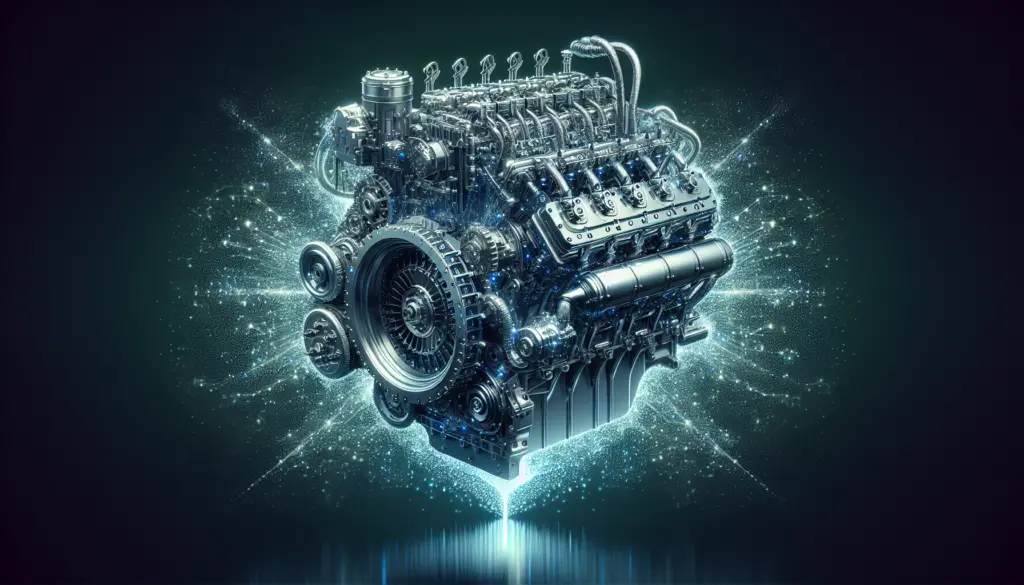
Optimizing Speed and Throttle Control
Speed and throttle control play a massive role in your engine’s performance and efficiency.
Understanding throttle control
The throttle controls the amount of air and fuel that enters your engine, regulating its speed. Proper throttle control can greatly enhance your engine’s efficiency.
Benefits of varied speed
Varied speeds can be beneficial for your engine. Constantly running your engine at high speeds can cause excessive heat and wear. Conversely, always running at low speeds can cause carbon buildup and poor combustion.
Practicing efficient throttle control
Practicing efficient throttle control involves varying your boat’s speed, allowing your engine to cool down and preventing carbon buildup. Aim to run your boat at different speeds throughout your journey.
Maintaining the Fuel System
The fuel system plays a vital role in your boat engine’s performance and efficiency.
Regular inspection of the fuel system
Regular inspection of your fuel system prevents leaks and clogs, ensuring uninterrupted fuel flow to your engine. Check your fuel lines regularly, and clean or replace your fuel filter as required.
Importance of using clean and quality fuel
using clean, high-quality fuel is essential for your engine’s performance and longevity. Low-quality fuel can lead to carbon buildup and poor combustion, damaging your engine over time.
Dealing with fuel contamination
Keeping your fuel clean is equally important. Contaminated fuel can cause engine trouble and damage. Regularly check your fuel for any signs of contamination like water or debris. It’s also a great idea to add a fuel stabilizer to prevent fuel degradation when storing your boat for prolonged periods.
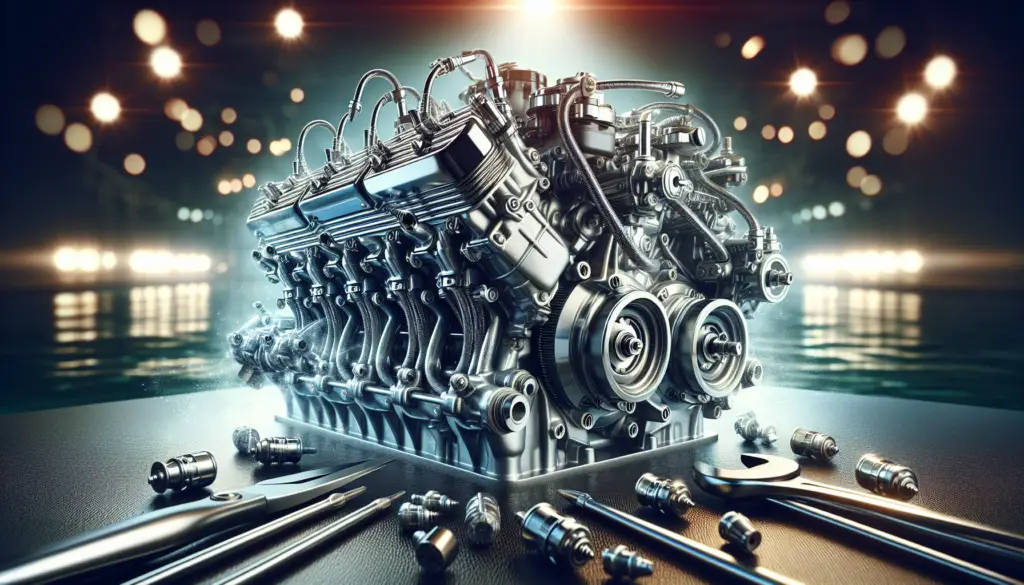
Proactive Prevention of Overheating
Overheating can cause severe damage to your engine. As such, proactive prevention of overheating is crucial.
Signs of overheating
Some common signs of overheating include power loss, an increased exhaust smoke, steam from your engine, or a high-temperature reading on your engine gauge.
Causes of overheating
Overheating can be caused by issues like a blocked cooling system, a malfunctioning thermostat, or low coolant levels.
Steps to prevent overheating
Regularly check your engine’s cooling system and coolant levels to prevent overheating. Be sure to take remedial action immediately if you notice any signs of overheating.
Professional Servicing and Tune-Ups
While regular self-maintenance is essential, professional servicing and tune-ups should not be overlooked.
When to opt for professional services
If your engine shows signs of serious trouble like excessive smoke, power loss, or overheating, it’s a good idea to have a professional look at it.
Regular tune-ups for better performance
Regular professional tune-ups can significantly improve your engine’s performance and life. A professional mechanic can spot issues that you might miss, ensuring that your engine remains in top shape.
Importance of professional inspections and repairs
Professional inspections and repairs are crucial for your engine’s continued optimal performance. Professional technicians are trained to diagnose engine issues accurately and provide effective solutions.
In conclusion, optimizing your boat engine’s power and efficiency is not a one-off task. It involves understanding your engine, regular maintenance, proactive preventive measures, and professional servicing. With these steps in place, you’ll be well on your way to enjoy many exciting adventures on the water!

